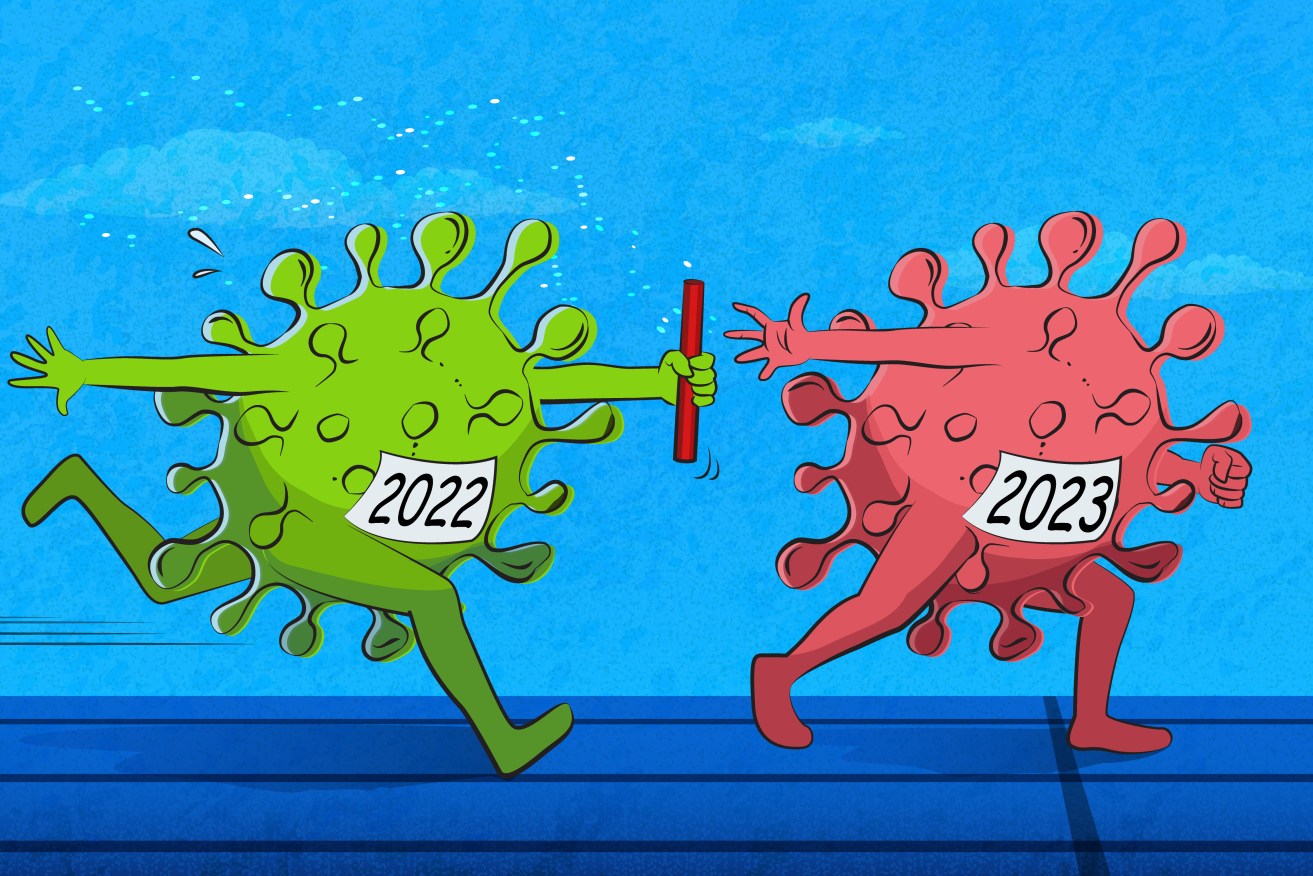New COVID-19 variant ‘Eris’: What you need to know


The new variant, Eris, is named after the Greek goddess of strife and discord. It may not be as bad as all that. Photo: Getty
A new variant of COVID-19 – designated this week as a variant of interest by the World Health Organisation – may drive an increase in Australian cases in late spring.
The variant – known as EG.5 or ‘Eris’ – is fast becoming one of the most prevalent in the northern hemisphere.
It accounts for 17.3 per cent of cases in the US as of August 5. It also accounts for about 15 per cent of cases in the UK.
Although the Eris has been in Australia for about four months, confirmed cases here can be counted in their dozens, not hundreds of thousands.
In terms of severe illness and death, the risk to public health has been judged as low.
This appears to be supported by the northern hemisphere experience. But it may be more infectious, leading to an uptick of cases.
The most common symptoms appear to be a sore throat and runny nose.
What WHO says
“Based on the available evidence, the public health risk posed by EG.5 is evaluated as low at the global level,” WHO said.
The agency said the risk appeared to be on a par with other circulating variants of interest.
“While EG.5 has shown increased prevalence, growth advantage, and immune escape properties, there have been no reported changes in disease severity to date,” WHO said.
Named after the goddess of discord
Eris is related to an Omicron subvariant called XBB.1.9.2 – which is more resistant to existing vaccines.
However, new vaccines are a few weeks away from being released, at least in the US.
Designed to suppress the XBB variant, the new vaccines should be effective against Eris, named after the Greek goddess of strife and discord.
Experts suggest the name is somewhat overblown.
What the experts say
Professor Adrian Esterman is Chair of Biostatistics at the University of South Australia.
He said: “Eris, the new Omicron subvariant taking off around the world, is somewhat misnamed. Eris is the Greek goddess of strife and discord, and the new subvariant is unlikely to live up to its name.”
But “because of its increased transmissibility, it has the potential to cause a fresh wave of cases in Australia, and countries like the UK and the USA are already seeing that happen”, he said.

The new variant might be more infectious, but an epidemic is unlikely. Image: Getty
Professor Esterman said most Australians are “over” the pandemic, and don’t really care that another subvariant is on the increase.
However, he said the variant served as a timely reminder to elderly and other vulnerable people to wear an N95 face mask when out and about, and to get up to date with their booster shots.
“Sadly, less than 50 per cent of elderly Australians are up to date with their COVID-19 boosters,” he said.
The good news is that a new monovalent booster vaccine will be arriving in Australia later this year.
“Based on XBB.1.5, it should give good protection against this new subvariant.”
A little more infectious
Dr Stuart Turville is Associate Professor in the immuno-virology and pathogenesis program at UNSW’s Kirby Institute.
Dr Turville said there are 68 known cases reported in Australia via whole genome sequencing. He said the first cases were detected in April-May.
He said that antibody levels to this variant “do increase following a booster dose”.
However, as Dr Turville told The Washington Post, the EG.5 variant was “a little bit more slippery” and “competitive” than other strains.
It was able to “navigate better the presence of antibodies” produced by vaccines, he said.
It had evolved slightly to “give it a better ability to engage and enter cells a little bit better”, he said.
Professor Stuart Tangye is head of the Immunology and Immuno-deficiency Lab at the Garvan Institute.
Professor Tangye said the “current and updated COVID-19 vaccine boosters should provide reasonable protection against EG.5”.
He said this is because “the spike proteins in this variant and previous variants – on which current vaccines are based – are very similar”.
Large epidemic in Australia unlikely
Dr Abrar Chughtai is director of the Master of Infectious Diseases Intelligence Program, University of New South Wales.
He said the new variant may eventually “replace existing circulating variants in Australia”.
However, he believes EG.5.1 “will be less likely to cause a large epidemic in Australia”.
Dr Chughtai gave three reasons:
- Currently there is no evidence to suggest that the new EG.5.1 variant causes more severe disease than previous variants
- Although breakthrough infections are very common now, we have quite high vaccination rates. This is protecting us against severe illness, at least
- We are going into summer soon.








